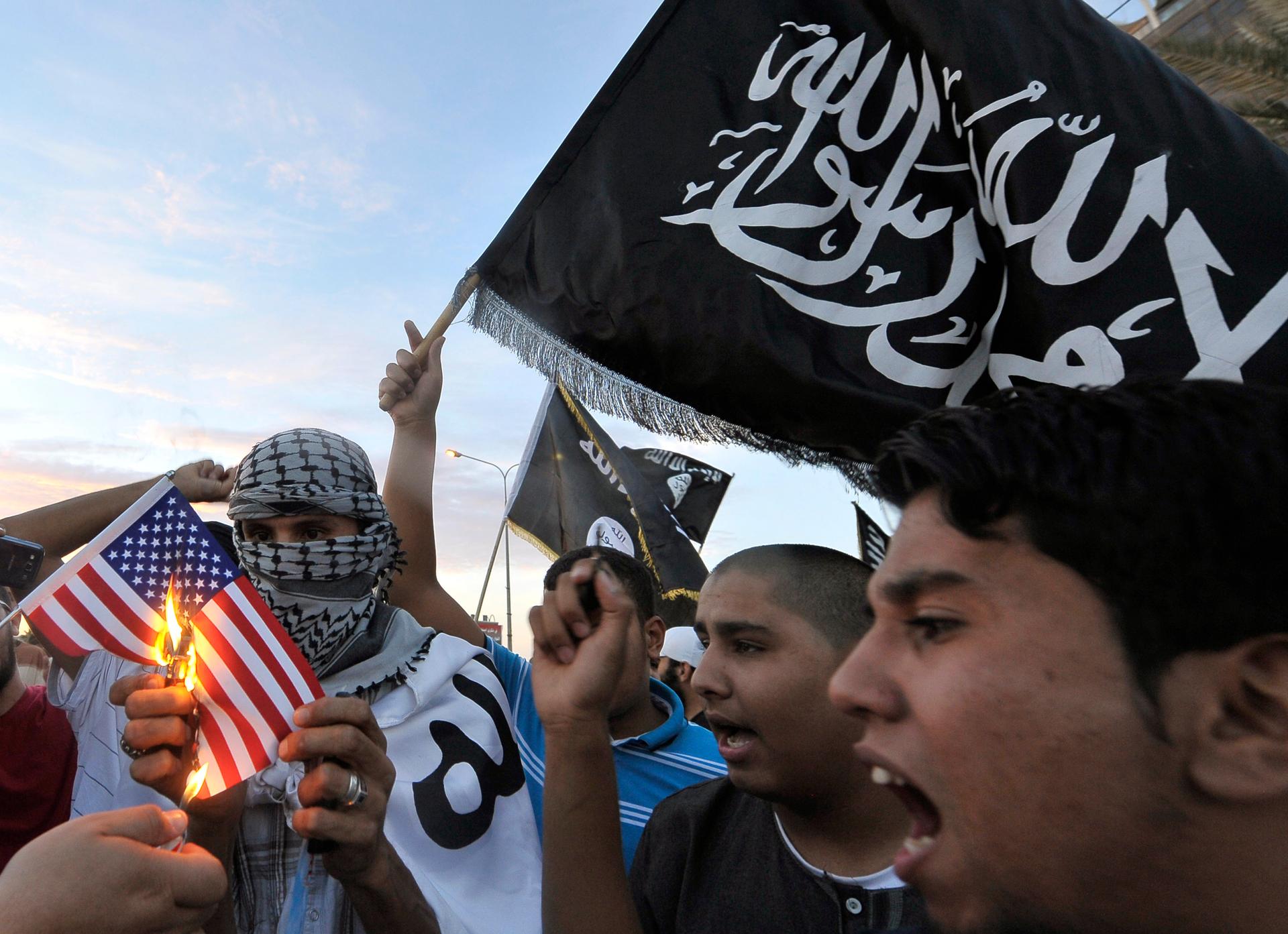Two unconnected raids in Africa with one mission – capturing terror suspects
Protesters burn a replica of the US flag during a demonstration against the capture of Nazih al-Ragye, in Benghazi October 7, 2013.
This weekend, the US conducted two daring raids on African soil on the same day. Both targeted terrorism suspects wanted by the US. One, in Libya, ended with the suspect in American custory. The other raid, in Somalia, ended with the team of Navy SEALs withdrawing without capturing their man.
The raid in the Libyan capitol of Tripoli played like a scene from an action movie. Armed men, some of them masked, surrounded a car, drugged the man inside, and then left with him within minutes.
The target was a Libyan named Abu Anas al-Liby, linked to al-Qaeda, and accused of planning the attacks on US embassies in Kenya and Tanzania in 1998. He had been on the FBI’s most-wanted list for more than a decade, with a $5 million bounty on his head.
Across Africa in southern Somalia, a group of Navy SEALs landed by boat in the coastal town of Baware. Their goal was to capture a leader of the al-Shabab militant group, affiliated with al-Qaeda, that claimed responsibility for the Westgate Mall attack in Kenya last week, among other acts of violence.
The SEALs reportedly met heavy gunfire and decided to withdraw without getting their target.
“As far as I know those two events were entirely unconnected," says Linda Robinson, a senior analyst with the Rand Corporation and author of the book One Hundred Victories, Special Operations and the Future of American Warfare. "And frankly it doesn’t really surprise me because the way these specialized operations raids go is they may track people for months and months on end," she says." As is the case with all of these raids, when the intelligence is there, they move."
Robinson says the US courts had indicted al-Liby and that the government wanted to try him in the US. She says that "is also one reason why, for instance, a drone was not the weapon of choice because if you want to bring someone to court, of course you need to have them alive." She notes that in-person raids like this can pick up computers and other information for intelligence purposes, as well.
Libya's interim government claimed the US did not inform it of the raid and demanded an explanation. US officials were quick to defend the right of the US to act on foreign soil.
US Secretary of State John Kerry said, "With respect to Abu Anas al-Liby, he is a key al-Qaeda figure, and he is a legal and an appropriate target for the US military."
“These operations in Libya and Somalia send a strong message to the world that the United States will spare no effort to hold terrorists accountable, no matter where they hide or how long they evade justice,” said US Defense Secretary Chuck Hagel in a statement.
While the US showed its strength, says analyst Robinson, "It is always, I think, risky, to declare victory in these types of struggles because these groups morph and metastasize and there's a pool of ready recruits in many countries."
*This story was updated to add more information.
